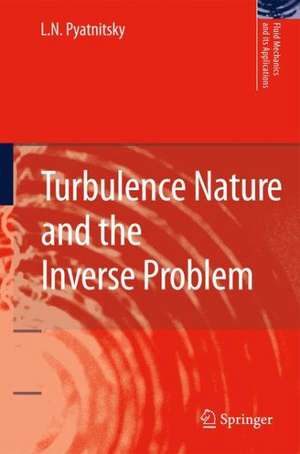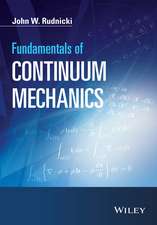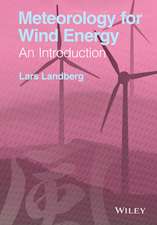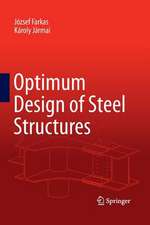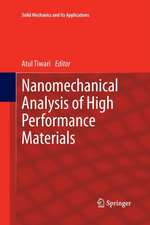Turbulence Nature and the Inverse Problem: Fluid Mechanics and Its Applications, cartea 89
Autor L. N. Pyatnitskyen Limba Engleză Hardback – 20 mar 2009
| Toate formatele și edițiile | Preț | Express |
|---|---|---|
| Paperback (1) | 636.45 lei 6-8 săpt. | |
| SPRINGER NETHERLANDS – 28 oct 2010 | 636.45 lei 6-8 săpt. | |
| Hardback (1) | 643.34 lei 6-8 săpt. | |
| SPRINGER NETHERLANDS – 20 mar 2009 | 643.34 lei 6-8 săpt. |
Din seria Fluid Mechanics and Its Applications
- 17%
 Preț: 462.79 lei
Preț: 462.79 lei - 18%
 Preț: 700.78 lei
Preț: 700.78 lei - 18%
 Preț: 1014.58 lei
Preț: 1014.58 lei - 17%
 Preț: 524.76 lei
Preț: 524.76 lei - 15%
 Preț: 646.30 lei
Preț: 646.30 lei - 18%
 Preț: 789.65 lei
Preț: 789.65 lei - 18%
 Preț: 780.82 lei
Preț: 780.82 lei - 20%
 Preț: 630.17 lei
Preț: 630.17 lei - 20%
 Preț: 696.89 lei
Preț: 696.89 lei - 18%
 Preț: 897.65 lei
Preț: 897.65 lei - 18%
 Preț: 1577.13 lei
Preț: 1577.13 lei - 15%
 Preț: 539.41 lei
Preț: 539.41 lei - 18%
 Preț: 1112.30 lei
Preț: 1112.30 lei - 18%
 Preț: 1116.89 lei
Preț: 1116.89 lei - 24%
 Preț: 1069.06 lei
Preț: 1069.06 lei -
 Preț: 443.31 lei
Preț: 443.31 lei - 15%
 Preț: 583.93 lei
Preț: 583.93 lei - 24%
 Preț: 1068.76 lei
Preț: 1068.76 lei - 24%
 Preț: 961.13 lei
Preț: 961.13 lei - 18%
 Preț: 835.15 lei
Preț: 835.15 lei - 18%
 Preț: 960.61 lei
Preț: 960.61 lei - 18%
 Preț: 949.55 lei
Preț: 949.55 lei - 18%
 Preț: 963.15 lei
Preț: 963.15 lei - 15%
 Preț: 590.27 lei
Preț: 590.27 lei - 15%
 Preț: 651.19 lei
Preț: 651.19 lei - 15%
 Preț: 646.62 lei
Preț: 646.62 lei - 15%
 Preț: 655.78 lei
Preț: 655.78 lei - 18%
 Preț: 1660.65 lei
Preț: 1660.65 lei - 18%
 Preț: 1087.54 lei
Preț: 1087.54 lei - 15%
 Preț: 644.30 lei
Preț: 644.30 lei - 24%
 Preț: 786.42 lei
Preț: 786.42 lei - 18%
 Preț: 1582.35 lei
Preț: 1582.35 lei - 18%
 Preț: 958.07 lei
Preț: 958.07 lei
Preț: 643.34 lei
Preț vechi: 756.86 lei
-15% Nou
Puncte Express: 965
Preț estimativ în valută:
123.12€ • 127.19$ • 102.47£
123.12€ • 127.19$ • 102.47£
Carte tipărită la comandă
Livrare economică 25 martie-08 aprilie
Preluare comenzi: 021 569.72.76
Specificații
ISBN-13: 9789048122509
ISBN-10: 9048122503
Pagini: 216
Ilustrații: XVI, 197 p.
Dimensiuni: 155 x 235 x 18 mm
Greutate: 0.5 kg
Ediția:2009
Editura: SPRINGER NETHERLANDS
Colecția Springer
Seria Fluid Mechanics and Its Applications
Locul publicării:Dordrecht, Netherlands
ISBN-10: 9048122503
Pagini: 216
Ilustrații: XVI, 197 p.
Dimensiuni: 155 x 235 x 18 mm
Greutate: 0.5 kg
Ediția:2009
Editura: SPRINGER NETHERLANDS
Colecția Springer
Seria Fluid Mechanics and Its Applications
Locul publicării:Dordrecht, Netherlands
Public țintă
ResearchCuprins
The turbulence problem.- Fluid motion.- Distribution of parameters in viscous flow.- Perturbations in viscous flow.- Perturbation in channels.- Spatio-temporal field of perturbations in channels.- Evolution of velocity oscillation field.- Experimental substantiation of turbulence wave model.- Transition from normal combustion to detonation.- An inverse problem of turbulence.
Recenzii
From the reviews:
“This is an interesting book, whose focus is on the nature of turbulent fluctuations. … This book will be particularly intriguing to specialists in the field and also to scientists who are interested in the many aspects of scientific debate.” (Barbara Vanda Villone, Mathematical Reviews, Issue 2012 e)
“This is an interesting book, whose focus is on the nature of turbulent fluctuations. … This book will be particularly intriguing to specialists in the field and also to scientists who are interested in the many aspects of scientific debate.” (Barbara Vanda Villone, Mathematical Reviews, Issue 2012 e)
Textul de pe ultima copertă
Hydrodynamic equations well describe averaged parameters of turbulent steady flows, at least in pipes where boundary conditions can be estimated. The equations might outline the parameters fluctuations as well, if entry conditions at current boundaries were known. This raises, in addition, the more comprehensive problem of the primary perturbation nature, noted by H.A. Lorentz, which still remains unsolved. Generally, any flow steadiness should be supported by pressure waves emitted by some external source, e.g. a piston or a receiver. The wave plane front in channels quickly takes convex configuration owing to Rayleigh's law of diffraction divergence. The Schlieren technique and pressure wave registration were employed to investigate the wave interaction with boundary layer, while reflecting from the channel wall. The reflection induces boundary-layer local separation and following pressure rapid increase within the perturbation zone. It propagates as an acoustic wave packet of spherical shape, bearing oscillations of hydrodynamic parameters. Superposition of such packets forms a spatio-temporal field of oscillations fading as 1/r. This implies a mechanism of the turbulence. Vorticity existing in the boundary layer does not penetrate in itself into potential main stream. But the wave leaving the boundary layer carries away some part of fluid along with frozen-in vorticity. The vorticity eddies form another field of oscillations fading as 1/r2. This implies a second mechanism of turbulence. Thereupon the oscillation spatio-temporal field and its randomization development are easy computed. Also, normal burning transition into detonation is explained, and the turbulence inverse problem is set and solved as applied to plasma channels created by laser Besselian beams.
Caracteristici
Origin of primary perturbation in turbulent flows. Nature Two mechanisms of turbulence Technique for computing spacio-temporal field of turbulent flow parameter oscillations Technique for numerical study of randomization process of oscillating parameters Step-by-step explanation of slow combustion transition into detonation The turbulence inverse problem definition and solution technique
